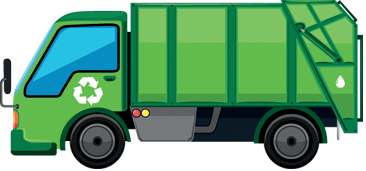Recently, a rather worrying report by the London Assembly Environment Committee has come out stating that available space in landfills is quickly running out, in order to countermeasure the situation, urgent steps must be taken by London waste management authorities, particularly toward dealing effectively with food waste and scraps.
Statistics show that each year, Londoners throw out seven tonnes of food waste and scraps. In light of this the report focuses on more efficient domestic waste collection practices on a local level, and more efficient food waste management on a metropolitan level. The report also suggests possible strategies on how to optimise collection and management given the local specifics faced by each borough council.
The report states that only twenty three out of thirty three London boroughs actually maintain and provide a specialised collection and disposal service for food waste. Sixteen of the boroughs did not have a separated waste collection service for flats at all. It turns out more than half of London’s households are left without the option to recycle.
At the moment, food waste accounts for about twenty percent of all waste collected from households. The Committee report says that local authorities should devise and implement separate collection and disposal service regardless of what kind of property. Doing so will increase London’s recycling capacity quite notably as the city’s recycling rate is quite sluggish and has been for a while (compared to other cities in EU and the rest of the world).
It is surprising that London has proper waste collection and management practices for ‘dry recyclables’ like paper, plastic, metal, wood, glass etc. but only a few places have a separate food waste collection and disposal service. Only half of all London households have access to a specialised food waste management program provided by local authorities.
 At the same time, London’s sluggish recycling rate and the fact that the city is quickly running out of landfill space makes addressing the food waste collection and management issue even more urgent. The report proposes for government funding to be secured and used for creating effective food waste management programs for all boroughs of the capital. The report urges the Mayor of London to initiate, support and popularise the proposed solutions as this would be invaluable in terms of educating the public and help meet London’s recycling targets.
At the same time, London’s sluggish recycling rate and the fact that the city is quickly running out of landfill space makes addressing the food waste collection and management issue even more urgent. The report proposes for government funding to be secured and used for creating effective food waste management programs for all boroughs of the capital. The report urges the Mayor of London to initiate, support and popularise the proposed solutions as this would be invaluable in terms of educating the public and help meet London’s recycling targets.
The implemented solutions should be long term, not band aid. This means that more waste processing facilities would be needed as London’s growing population increases waste production by extra one million tonnes (projected over the next couple of years or so). Currently, half of all food waste collected throughout the city is composted in special anaerobic digestion facilities outside Greater London.
One portion of the city where recycling rates are next to none is Inner London. This part of the city recycles mere sixteen percent of all waste collected, which makes London’s overall recycling rate of thirty four percent seem like a real achievement. Figures show something must be done quickly.

